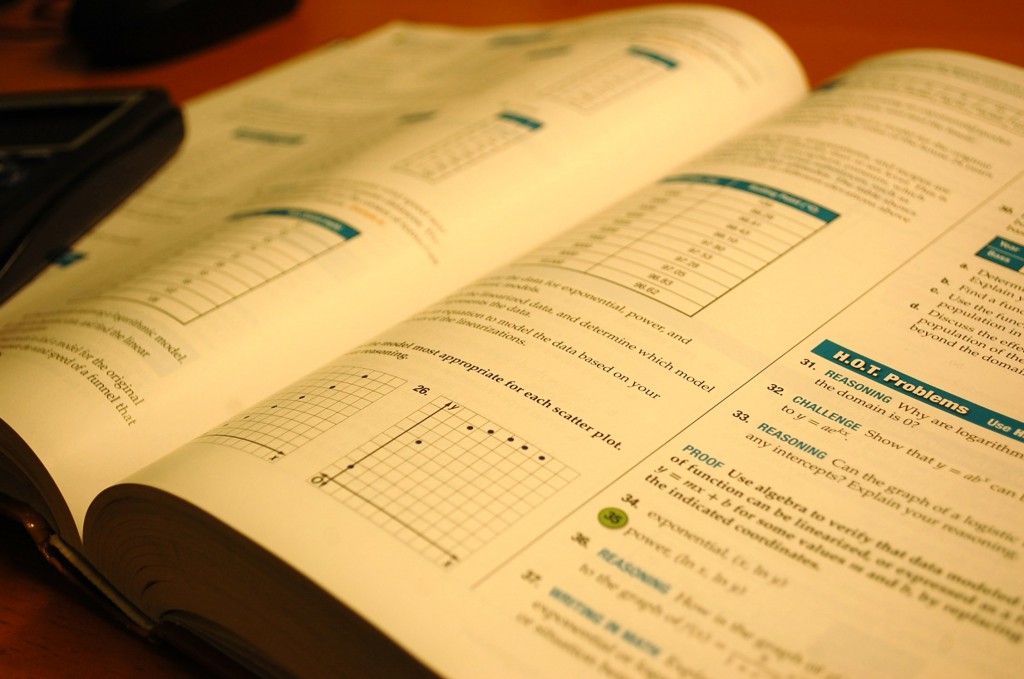-
Charlottesville
- (434) 296-5111
-
Great Falls
- (703) 759-3624
-
McLean
- (703) 288-2808
Georgetown Learning Centers Blog

Back to School Tips from the GLC Team
The beginning of the school year brings lots of excitement, as students make new friends, meet new teachers, and tackle new topics. But the initial back to school anticipation makes it easy to forget about some of the little things that can help students succeed over the course of a school year, so our tutors wanted to share a few tips with students this fall.
Math
Science
Foreign Languages
English
History
Math
Whether students are taking elementary school math or AP Calculus, good habits and smart planning go a long way. Here are a few tips our tutors recommend for students going back to school:
Go Beyond the Minimum
Students often have trouble in math classes because they work until they finish their homework instead of working until they understand the material. Other students, particularly those in higher-level math classes where homework is not graded, simply don’t invest the time or energy they should practicing important skills. Math students get the best results when they approach homework as opportunities to improve rather than chores to be rushed through. They can also make use of additional practice sections in their textbooks to brush up on tricky concepts and confusing areas before quizzes and tests.
Look Ahead to Trouble Spots
Most math classes build on what students learn in previous years. This can be a good thing because it helps ease the learning curve, but it can also catch students by surprise when they’re expected to know concepts they may have previously struggled with. Students should take a little time early in the fall to look ahead at the year’s material and anticipate which sections might be especially challenging. This gives students time to improve their fundamentals and approach new material confidently.
Appreciate the Benefits of Math
Strong math skills can obviously lead to good grades in math classes, but they also translate directly to other academic topics. Sciences like chemistry and physics rely on algebra, geometry, and trigonometry on a regular basis, and other subjects like economics also depend on good quantitative skills. This can also motivate students who are interested in science or business to invest more energy in their math classes.
Science
Science classes present a variety of challenges. Middle schoolers and freshmen have to learn new vocabulary and fundamental steps of scientific inquiry before moving on to tricky formulas and diagrams later on in chemistry and physics. Our tutoring team recommends keeping the following ideas in mind for this year’s science classes:
Emphasize Fundamentals
All levels of science classes rely on a relatively small number of fundamental skills and concepts. Middle schoolers need to feel comfortable with things like the states of matter, biology students must absorb challenging terminology, and chemistry uses the periodic table on a daily basis. Numerical standards such as scientific notation and significant figures also become essential in chemistry and physics through the AP level. Students should spend time mastering these fundamental concepts early in the school year so they’ll be equipped with the information they need to excel later on.
Understand via Hands-On Experience
Many students appreciate that science is more tangible than abstract subjects like math, and biology, chemistry, and physics classes include regular lab experiments, but students can also look to the world around them to clarify concepts ranging from cellular structure and oxidation to momentum and optics. A little hands-on experience can be particularly effective when students are having trouble clarifying concepts by reading about them in textbooks or repeating practice problems.
Work Hard in Other Subjects
Students can set themselves up for success in science classes by working hard in related courses. Geometry, Algebra II, and Precalculus skills all translate to chemistry and physics calculations. Similarly, foreign languages like Spanish, French, and Latin all utilize roots and prefixes that can help students learn new vocabulary more efficiently, which is particularly useful in biology and chemistry.
Foreign Languages
Foreign languages are challenging because students must learn new grammar and vocabulary while mastering pronunciations and conversational skills. This year, we’re lucky to have expert tutors in languages like Spanish, French, and Latin, and they’ve recommended that students consider the following points this year:
Diversify Your Study Methods
Some degree of rote memorization is required when learning any foreign language, particularly when it comes to vocabulary, but students can get into trouble (and grow very bored with languages) when they over-rely on memorization. Students should try to add other forms of practice to make sure they’re mastering skills effectively. They can create mini practice tests, perform mock verbal assessments, and engage with non-textbook materials to improve mastery.
Apply Knowledge by Practicing
Just as memorization has its limits, studying can sometimes fall short when learning a new language, and in those cases there’s simply no substitute for real-world practice. Students can improve their language skills by conversing or translating, and these activities can become more fun and more efficient when done with a friend or group of fellow students.
Look for Everyday Applications
Class time is a great opportunity to learn more about a new language, but a few hours each week don’t allow for the immersion that leads to mastery. Students can get an advantage by looking for everyday opportunities to use foreign languages. Even something simple like watching a foreign-language news program or translating a restaurant menu into English can help students engage outside the classroom.
English
English classes can be among the most frustrating for students because learning to read and write effectively is a lifelong process. That said, making progress can be infectious, and our tutors shared some great ways for students to make the most of their English classes this year:
Read on a Regular Basis
Most English classes require students to read novels and poems throughout the year, but students should also expose themselves to other forms of writing so they’re comfortable reading many different sources. Outside of school, we recommend that students pursue their interests when reading, even if it may point them in unconventional or non-academic directions. Students who learn to enjoy reading for its own merits will be well equipped for classes throughout high school and college.
Correct Papers, Even If Grades Are Final
Revising and editing in multiple stages is crucial for developing writers, but many students fail to incorporate the most direct feedback they receive: grades on final papers. Students should spend time revising their papers based on the final feedback received because it helps them understand where they need to improve. Many teachers are also happy to discuss feedback and clarify issues so their students become better writers, so we also encourage students to communicate openly with their instructors.
Make Writing a Habit
Writing skills stay sharpest when they’re used on a regular basis. English classes generally include frequent writing assignments, but students should also get into the habit of writing thoughtfully on a daily basis. Even a short composition like a journal entry, blog post, or email allows a student to practice fundamental skills and hone his/her writing process.
History
History classes are important because they help students learn about the world and develop critical thinking skills, but they also require good organizational skills and study habits. Our tutors shared a few great ways for students to get the most out of these classes in 2014-15:
Organize for the Future
Many students struggle in history classes in the spring because they need to recall an entire year’s worth of material for final exams. Students should begin the year with a clear plan for organizing their notes, handouts, and tests so it’s easy to refer back to needed material later in the year. This is particularly important for students in AP classes, since they’ll be expected to spend April reviewing previous material intensively.
Incorporate Visual Aids and Timelines
History students frequently complain about the amount of dry, text-heavy reading that’s required. Students who anticipate these issues can work around them by generating visually efficient study aids like timelines or using graphic organizers like Venn diagrams and idea maps. These tricks help condense a lot of information into smaller chunks, which comes in very handy when it’s time to prepare for a test.
Emphasize Connections and Trends
One of the biggest challenges for history students involves synthesizing facts and figures into larger connections and trends for purposes of analysis. Especially in high school courses, where timed writing exercises are the norm, students need to equip themselves with information they can use to make compelling arguments. Spending a few minutes brainstorming connections and trends can help students craft effective thesis statements and respond effectively to short-answer questions.
We hope your family gets off to a strong start this year, and we think the tips listed above can be great food for thought as kids get back to school. If you need academic support at any point during the year, please feel free to contact us. We would love to work with you this year!

Annie Burnquist
Founder
Georgetown Learning Centers
Would you like to share your thoughts?
Would you like to share your thoughts?
Leave a Reply
You must be logged in to post a comment.

0 Comments